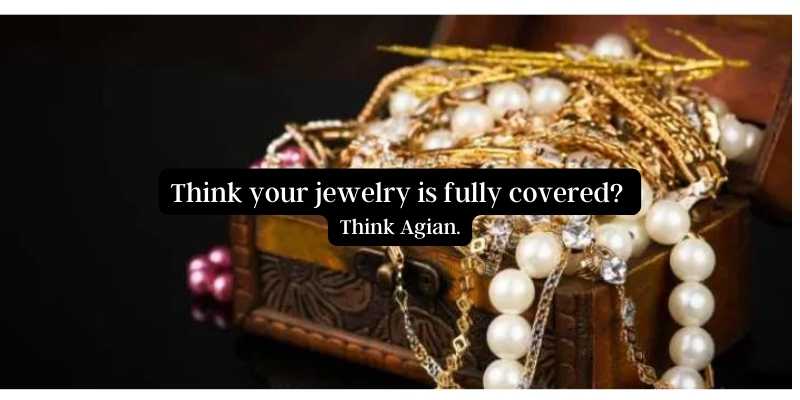
Palm Coast Homeowners, Your Jewelry May Not Be Fully Covered By Your H.O. Insurance: Here's Why.
Palm Coast Local
Tips
For Palm Coast and other Florida homeowners, it's crucial to understand that jewelry holds both sentimental and financial value. Your homeowners insurance policy typically includes coverage for personal items, including jewelry, but there are specific limits in place, often ranging from $1,000 to $2,000.
Have you ever wondered how much of your treasured jewelry is truly covered by your home insurance policy? It's a question that can stir up emotions when you realize that the protection you thought you had might not be as extensive as you'd hoped.
Imagine having a homeowners insurance policy that offers you a substantial $400,000 in coverage, a comforting safety net for your cherished possessions. However, it's essential to understand that you can't simply allocate this entire amount to safeguard your jewelry. Most policies typically allocate personal property coverage at around 50% of your total insurance coverage.
Now, here's where the emotional rollercoaster begins. Your jewelry, those precious gems and heirlooms filled with memories, are deemed high-value treasures that can slip through your fingers all too easily. That's why insurance policies often come with specific limits, often falling within the range of $1,000 to $2,000 for jewelry coverage.
Imagine that you have an exquisite diamond ring worth $5,000. In this scenario, your home insurance would only extend protection to the initial $1,000 to $2,000 of its value. The realization dawns that, in most cases, this coverage falls woefully short of adequately safeguarding your entire jewelry collection. It's a sobering thought, especially when you possess particularly valuable pieces or a substantial assortment of jewelry that holds profound sentimental value.
What does your homeowners jewelry policy encompass? While we cannot precisely determine the contents of your individual homeowners policy, there are standard practice that are often included. The essential question to ask is, "Under what circumstances is jewelry covered by homeowners insurance?" The answer lies in instances where jewelry is lost or damaged due to a covered peril, such as theft or fire, as outlined in your homeowners insurance policy.
For example, if your residence is burglarized while you're away on vacation, and thieves make off with a cherished family heirloom necklace, your policy will typically cover a portion of its value—up to a maximum limit specified in your policy.
Common perils covered by insurance typically include:
- Theft
- Lightning or fire
- Hail or windstorm
- Damage caused by aircraft
- Explosions
- Damage caused by vehicles
- Vandalism
Listed are a few common items, review your policy for full disclosure.
It's essential to recognize that your homeowners insurance may not extend coverage to your jewelry if the loss or damage results from a peril not explicitly listed in your policy. For instance, if your ring slips off your finger and vanishes down the drain during a cleaning session, it won't qualify for coverage since the loss is not linked to a peril explicitly mentioned in your policy. Similarly, losing or accidentally damaging a piece of jewelry will generally not be covered by your homeowners insurance.
To provide added peace of mind and comprehensive coverage, you might want to explore the option of purchasing a separate jewelry insurance policy, distinct from your homeowners insurance. This additional coverage can help safeguard your jewelry against potential losses, ensuring that your treasured items are adequately protected.
Furthermore, in cases of jewelry loss or damage due to a flood, a separate flood insurance policy may be required, as standard homeowners insurance typically does not cover losses or damage resulting from natural floods.
There are several jewelry insurance companies that write exclusively for jewelry. You'll want to reach out to your local insurance agent so they can provide you with a quote that meets your specific needs. They understand and have information regarding each companies ratings and customer satisfaction outside of the normal public reviews.
This article is for information purposes only, designed to help you make informed decisions. Help others you know by sharing or commenting with your experience.
{ampz:share-now}








